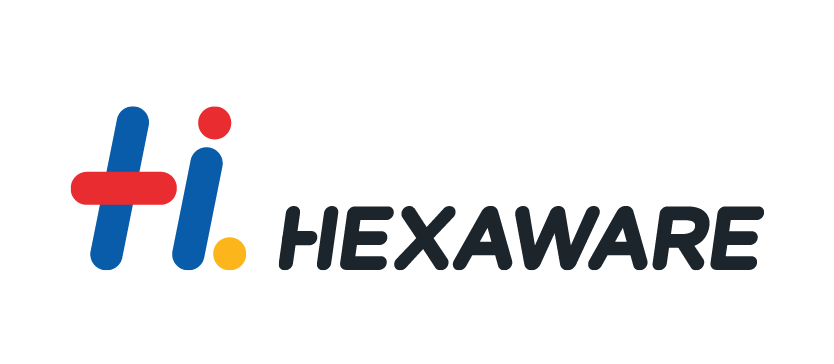
For Pourab Karchaudhuri, working at global IT consulting company Hexaware is like “being strapped to a rocket ship with extreme turbulence, hitting moonshot goals at full speed”. In other words, it’s been quite a journey.
Like many of us, the technical architect has experienced a shift in priorities and ways of working over the past 12 months. While it has been an extremely challenging time, the pandemic has also created a rare opportunity to think about our lives and work in a new light.

Access deeper industry intelligence
Experience unmatched clarity with a single platform that combines unique data, AI, and human expertise.
With 42 offices globally and more than 20,000 employees, Hexaware is embracing the benefits that come with this new environment. Earlier this year, the company announced its intention to make over 6,000 technical hires in 2021 alone – a number which has since been revised upwards by a multiple of thousands. The IT giant finds itself at something of a crossroads, reframing its place in the world and reassessing how it can enable new, existing and future colleagues to achieve their professional goals.
New workforce priorities
Perhaps the biggest takeaway for Karchaudhuri since last March has been developing a healthier work-life balance.
“Patience has become more important than aggressive approaches demanding task completion overnight,” he says. “Staying healthy and sane has become a priority.”
Having worked at Hexaware’s Chennai office for just over four years, Karchuadhuri has already worked his way up from a software engineering trainee to a technical architect for the research and development team.

US Tariffs are shifting - will you react or anticipate?
Don’t let policy changes catch you off guard. Stay proactive with real-time data and expert analysis.
By GlobalData
But his ambitions don’t stop there. In fact, he says, “the freedom of constant learning, challenges and self-assessments” over the last year has created a space to prioritise career development – without making health sacrifices.
This extends to the wider team, where rapidly evolving consumer demands have meant increased training opportunities. “Reskilling has become urgent, and everyone has started to code,” explains Karchaudhuri. “It’s become imperative to stay ahead of the game and respond to the rise in demand for remote, cognitive and immersive technologies.”
It’s an area that Neil Fox, Hexaware’s chief technology officer for North America, has been keen to explore. In the past 12 months, he has worked virtually with his team to develop new services and delivery capabilities.
The dramatic shift to remote working brought unexpected benefits. “One of the impacts of the pandemic is that we’ve all been grounded when we used to travel quite often,” says Fox. “In addition, since many cities were locked down, we had a lot more time to focus on new work opportunities.”
Remarkably, the delivery of these services has hardly been impacted. The organisation’s UK-based associate director for IMS, Sam McGuinness, puts this down to Hexaware’s global reach.
“We’ve always operated with a collaborative approach across all regions and time zones, and each project I work on requires collaboration with colleagues who are remotely located,” he explains. “So, from my perspective, the pandemic had less of an effect on us as an organisation that is used to working in this way than others who may have been more familiar with single office-based working practices.”
Changing the conversation
Back in Chennai, Karchaudhuri has noticed the nature of dialogue among his peers evolving. “They’ve become more active,” he says. “Despite having a three-fold increase in the number of meetings and calls per day, the introverts have become more vocal, the reclusiveness has vanished, and the world has become more connected.”

The technical architect is keen to highlight management’s efforts to ensure employees have felt safe, secure and motivated throughout the pandemic. Crucially, he says, “leaders now connect often, and the organisation feels flattened.”
This would not be possible without the concerted effort of those in charge, which, says Fox, involved developing “clear communication opportunities for leadership to share thoughts, ideas and company updates to the entire employee population”.
For example, weekly “Coffee with Keech” meet-ups provide an opportunity to have open discussions with the company’s chief executive R “Keech” Srikrishna, while the Leadership Lantern Series is a chance for senior leaders to include employees in strategic and practical discussions about their visions and goals for the organisation.
A focus on inclusivity and communication reflects the findings of Tech Monitor’s recent Technology Leaders Agenda 2021, sponsored by Hexaware, which found soft skills around human talent to be the overriding business priority for technology leaders globally.
These efforts certainly seem to have paid off. “Not only do I still feel like an integral part of the work eco-system, but I have also noticed a newfound sense of ownership and representability,” says Karchaudhuri.
A diverse culture
Fostering this open, empowering and diverse culture is at the heart of the organisation. Initiatives like Evolve are enabling employees to update their capabilities for new roles while Rising Women@Hexaware provides mentoring and support for women with the desire to become business leaders.
When asked what defines a true ‘Hexawarian’, Karchaudhuri stresses, “it’s not someone who thinks about daily task completion alone”. Rather, he says, “it’s about coming up with ways to truly collaborate, become leaders, create legacies and promote a motivational environment for themselves and the organisation as a whole, irrespective of a pandemic or a meteor strike”.
McGuinness adds: “You’ll never hear someone within Hexaware say it can’t be done as there’s always a way, and typically the customer’s needs can be met, even if it wasn’t what was originally intended.”

Of course, the last 12 months have had a huge impact on workplace cultures across the world. However, some have been slower to adapt than others. Before Covid-19, McGuinness highlights the lack of flexible working policies, with many companies not allowing staff to work from home “until the pandemic forced their hand”.
This isn’t something employees at his company have to worry about. “Being able to look after children and family members and accommodate the unexpected is invaluable,” says the associate director. “Hexaware was ahead of the game in this area – we’ve always had a flexible work culture. It would be good to see more industries focus on output rather than hours.”
Contemplating what lies ahead, Karchaudhuri is optimistic that, despite the hardships of the past year, the pandemic has the potential to bring about lasting, positive change.
“The essence of innovation comes with the deprivation of something,” he says. “I think this feeling of unity, honest collaboration, empathy and flexibility should persist, even in a post-Covid-19 world.”




